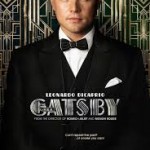 This is a great article on Gatsby Director Baz Luhrmann and his vision for the 21st Century Gatsby.
This is a great article on Gatsby Director Baz Luhrmann and his vision for the 21st Century Gatsby.
Three things struck me that make me even more excited for the film’s release.
The first is Luhrmann’s decision to have Nick Carraway, the story’s narrator, tell the story from a sanitarium as a severe alcoholic.
At first, I recoiled.
Maybe I saw Nick as Sam Waterston’s version in the 1974 movie. Sam Waterston would never be a hopeless drunk – even during the Depression.
But I think it was my original theory that Nick is really half of the personality of F. Scott Fitzgerald himself. The other part of his personality is Gatsby. Nick represents order and a sense of history. Nick envisions the Dutch sailors first glimpse of our pristine green shores. Gatsby is the dreamer who pushes the limits of achievement that creates and distorts the American Dream.
Then I realized how Nick’s alcoholism makes sense. Like America after the excesses 1920s, he crashes. Americans were on a psychological roller coaster. We thought we had end the idea of war, then the worst of all wars, World War I, hit. Then we escaped into what seemed like the endless prosperity of the Jazz Age, only to have the phony economy destroy the wealth myth. For many of us, it sounds like today.
Not only that, but Fitzgerald had his battles with alcoholism. His wife Zelda who battled mental illness died in a sanitarium fire in the 1930s.
The second revelation was the music of J-Z. So many wonder how a hip-hop creator could tie into the jazz age. But Luhrmann had a great connection. From the article:
“Jazz in 1922,” when the novel is set, “was being referred to as an African-American fad,” he said. “Why would Fitzgerald put such ephemeral stuff, actual song lyrics, in his book? Because it made it immediate and visceral and exciting for the reader. And when you think of an African-American street music today that is visceral and exciting and is making a big impression on popular culture, that’s hip-hop.”
The third was how DiCaprio will play Gatsby.
“When you first see him, he’s the coolest guy in the world,” he said. “The next moment he’s Buster Keaton, and then he’s the Prince of Wales. He’s nervous and psychotic, and then he’s dark and intense. He changes the character constantly because Gatsby picks stuff up. He’s performing the character of Jay Gatsby.”
It reminds me of the line from the book: “The truth was that Jay Gatsby, of West Egg, Long Island, sprang from his Platonic conception of himself.”
This makes sense. I mentioned a recent book called Quiet which shows how the 1920s gave us a change in our culture. We went from a culture of character to a culture of personality. Gatsby, as I have said, could be our first TV host with shtick and an underlying goal.
Comments on this entry are closed.